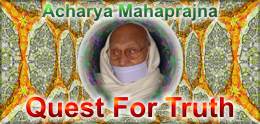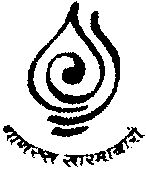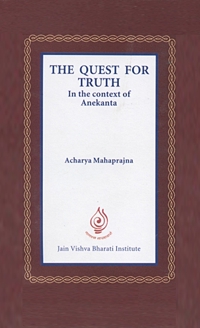
It is true that he has changed the world and it is also true that he has not been able to change it around in a trice to his whims and fancies; he has not been able to create comforts in the world without bindings. Both these truths are a reflection of man's successes and failures, his capabilities and his inadequacies. If man's capabilities were dependent on any one of the factors such as time, nature etc., then there would have been a conflict between these factors, each one set to destroy the other. But in universal substances and in universal laws there is a harmonious balance between the conflicting and the reconciling. That is why they contribute their respective mite to the completion or a job. From a relative point of view, none of them can be given more importance than the other. They are important and primary in their respective areas. Time cannot work in lieu of nature or nature in lieu of time. Universal laws cannot play the role of effort nor effort that of universal laws. And yet in the world of action, effort occupies the prime place. Effort cannot be separated from the influence of time, but a change can be brought about in the time duration. Effort cannot be separated from fate but fate can be changed with effort. These truths can be tested on the anvil of history and philosophy.
As man's knowledge grows, his capacity for work increases. In the early stages of creation, man's area of knowledge was still not developed. The tools for acquiring knowledge were also limited and so the resultant human exertion was less. In comparison to stone-age, man's knowledge has indeed grown in the atomic age. His tools are strong and the capacity for work has also increased tremendously. The primitive man was solely dependent on nature. If it rained, crops would grow, as much as an acre of land could grow; as much time as was required to ripen it, so much time it would take. Today's man is not dependent on all this. Having developed different means of irrigation he has removed his dependency on the rains. Having developed fertilizers man has increased the per acre yield and through efficient tools is also trying to reduce the time for ripening of crops.
Many instances where effort has influenced time and nature can be quoted from our cultural history.
Factors like time, nature etc., are not endowed with the power of knowledge, so their influence on human effort is minimal. Effort has been blessed with the patronage of knowledge and so it is able to influence time, nature, fate etc. With this influence it is able to make the present different from the past.
Immanuel Kant has propounded that man is independent in his capacity to resolve and so should be independent in action as well as in enjoying the successful or unsuccessful fruits of such labour. If he were not independent in action then he would not be dependent in action or its fruits. The famous contention of the Indian theory of karma is that good karmas give good results and bad karmas give bad results. As the nature of work a man does, so the fruits he reaps. Analyzing this sutra we see that man, while doing new actions is dependent on the older ones. He is not independent in action or in bearing the fruits of this action. If he were not independent then he cannot be held responsible for any good or bad act. The present has no role. It is a puppet in the hands of the past.
 Acharya Mahaprajna
Acharya Mahaprajna


